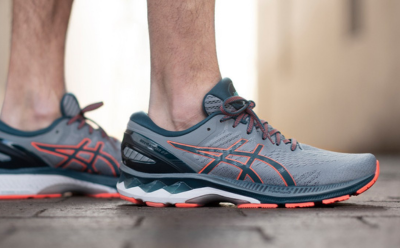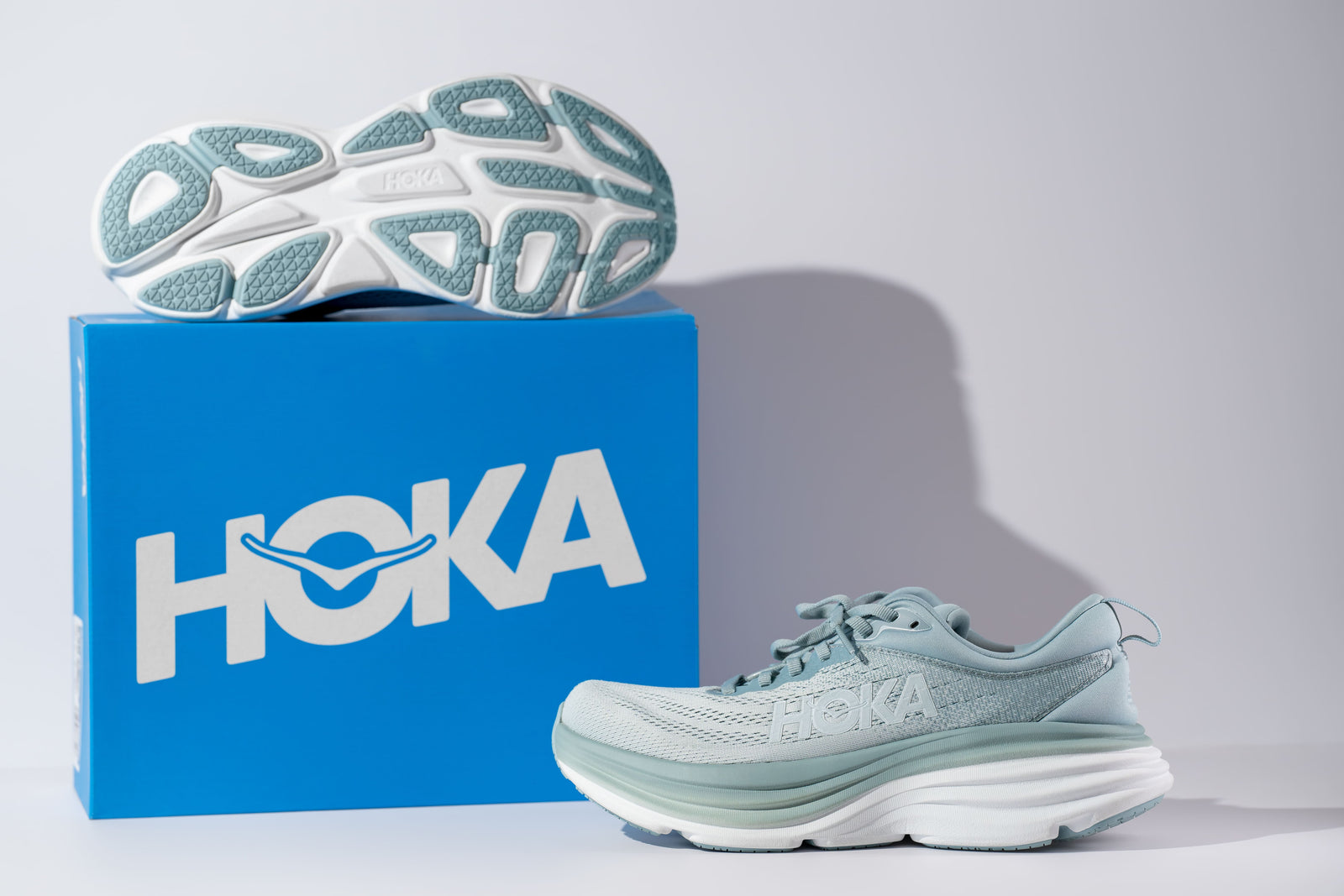As an avid runner, you've probably learned to appreciate the significant impact nutrition has on how well you run. Similar to how choosing the perfect pair of shoes from our comprehensive women's running shoe collection or men's running shoe collection can markedly influence your experience on your run, the food and drinks you consume have a significant impact your energy levels, endurance, and recovery.
Feeding your body with the right nutrients isn't just about keeping hunger at bay. Rather, it's about giving your body the fuel it needs to power through a run, aiding in muscle recovery and setting you up for a great performance on your next run.
Understanding Sports Nutrition to Boost Running Performance
It's imperative to have a thorough understanding of sports nutrition before diving into particular nutritional strategies. It's critical to understand how Cape Town's particular climate affects the body's use of energy during physical activity, especially for runners.
Aside from climate, several other factors influence a runner's nutritional requirements. These include the duration and intensity of the runs, the runner's individual body composition, and the state of their overall health. As such, it's vital to understand that each runner's nutritional needs are unique. A one-size-fits-all approach to nutrition may not work.
Creating Your Sports Nutrition Plan
Your nutritional plan should be tailored to your specific needs, giving your body the energy it needs to run efficiently and recover quickly. Good sports nutrition involves maintaining a balance of various nutrients in your diet. These include carbohydrates for energy, proteins for muscle repair, fats for prolonged energy release, vitamins and minerals for optimal bodily functions, and water for hydration.
A well-balanced diet not only fuels your runs but also ensures your overall health and well-being.
Pre-Run Nutrition: Fuelling for Running
The right nutrition prior to your run can make or break your performance. It's like the warm-up before a workout; it prepares your body for the task ahead. Properly fueling your body can improve your endurance and speed, as well as help to prevent early fatigue and injuries. Nutrition for running can be made easier with a variety of products such as pre-workout shakes to help energise you on your run.
Designing Your Pre-Run Meal
A pre-run meal should ideally be rich in complex carbohydrates for sustained energy, contain a moderate amount of protein to assist with muscle repair, and include a small amount of healthy fats for long-lasting energy. A meal like this before a run can provide a steady release of energy, allowing you to run for longer periods of time without becoming fatigued.
The right pre-run meal not only fuels your body for the run but also helps in maintaining your overall energy levels, thus enabling a more enjoyable and productive running session.
Hydration Strategies for Cape Town Runners
Hydration is a crucial aspect of sports nutrition. This is particularly true in warmer climates, such as Cape Town. Runners need to stay adequately hydrated to maintain body temperature and prevent dehydration, which can severely hinder performance and cause health complications.
Staying well-hydrated is as essential as wearing suitable footwear for your run. Even slight dehydration can lead to decreased performance, making your runs feel much harder than they need to be.
Making Hydration a Priority
It's not difficult to keep yourself adequately hydrated. It can be as simple as carrying a water bottle with you during the day and making a conscious effort to sip regularly. This strategy also serves as a constant reminder to hydrate before, during, and after your runs, which helps to maintain optimal body functions.
Hydration isn't just about how much water you drink; it's also about when you drink it. A good rule of thumb is to drink water all day long, not just when you're running.
Post-Run Nutrition Tips
Just as warming up is crucial before a run, cooling down and refuelling your body after a run is equally important. The food and drinks you consume after a run play a key role in helping your body recover and replenish energy stores.
Consuming the right nutrients after a run can significantly improve your recovery process, leaving you feeling rejuvenated rather than exhausted.
Choosing the Right Post-Run Foods
Your post-run meal should ideally consist of a combination of carbohydrates and protein. Carbohydrates are required to replenish your energy stores, while protein aids in the repair of any muscle damage sustained during the run. Consuming a balanced post-run meal can improve your recovery and make you feel better. This helps you get ready for your next run faster.
By choosing the right foods to eat after your run, you can maximise your recovery and be ready to tackle your next run with renewed energy and enthusiasm.
Key Nutrients for Muscle Recovery
In addition to the crucial macronutrients of protein and carbohydrates, there are a number of important micronutrients that are essential for promoting muscle recovery. Some of these include antioxidants, which can protect against the oxidative stress brought on by strenuous exercise, and omega-3 fatty acids, which have anti-inflammatory properties.
Incorporating these nutrients into your diet not only aids recovery but also contributes to overall health, boosting your immune system and reducing the risk of chronic diseases.
Incorporating Recovery Nutrients in Your Diet
To maximise recovery, try to incorporate foods that are rich in these nutrients into your daily diet. Regular consumption of these nutrients can support faster recovery times, ultimately improving your overall running performance.
With faster recovery, you can run again sooner, maintaining the consistency that is crucial for achieving your long-term running goals.
Optimal Fueling for Long-Distance Running
If you're a long-distance runner or training for a marathon, your nutritional requirements will differ from those of a recreational runner. Long-distance runs demand a higher intake of carbohydrates to maintain energy levels throughout the run.
Consuming enough energy-rich foods and drinks before, during, and after a long run can help you maintain your performance, avoid early fatigue, and recover faster.
Creating a Long-Distance Nutrition Plan
Your nutrition plan for long-distance running should focus on foods and drinks rich in carbohydrates. These give you a steady release of energy, allowing you to keep your pace and endurance up throughout your run.
With a tailored long-distance nutrition plan, you're well-equipped to tackle the unique demands of these challenging runs.
Preparing for the Future
As a runner, it's essential to always look forward, setting new goals and constantly striving for improvement. Regularly updating yourrunning gear and refining your nutrition strategies can be instrumental in achieving your goals and experiencing the joy of running at its finest.
Conclusion
Proper nutrition is a critical component of a runner's overall performance and wellbeing. Understanding your body's unique needs and tailoring your diet accordingly is crucial for improving your running performance.
The strategies outlined in this article can help you meet your nutritional needs, fuel your runs effectively, recover quickly, and maintain your overall health and vitality.
Wrapping Up
Listening to your body and giving it what it needs when it needs it is the key to successful running nutrition. The nutrition tips and strategies in this article can help you optimise your running nutrition and push your performance to new heights.
If you have any questions or need further guidance on optimising your running nutrition, don't hesitate to get in touch with us. We're here to support you on your journey towards becoming a healthier, stronger, and faster runner.









Leave a comment (all fields required)